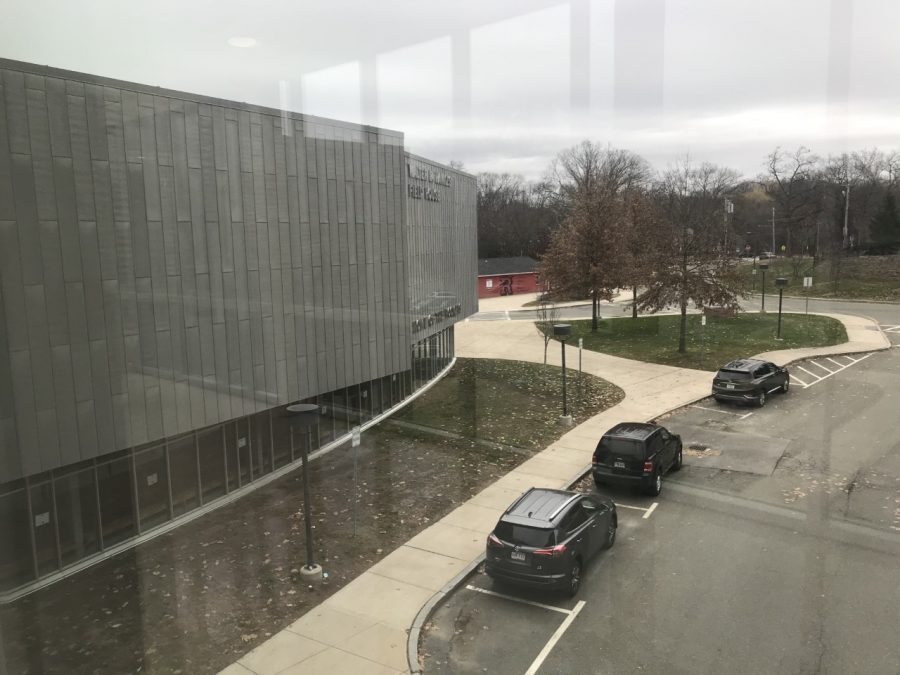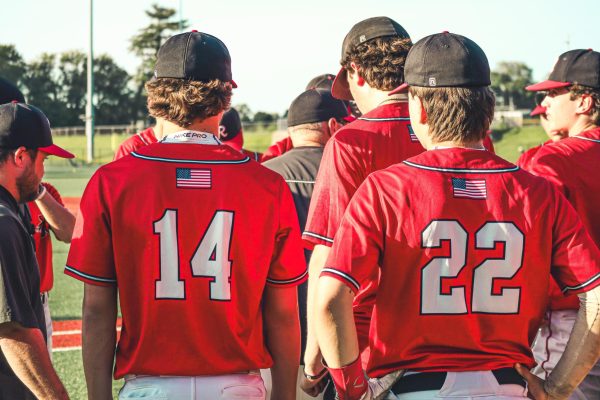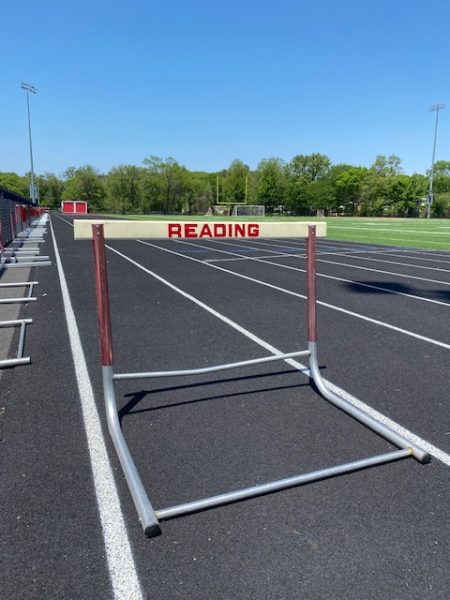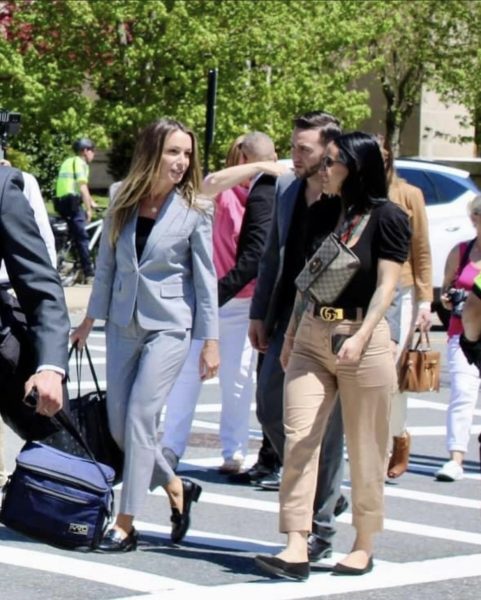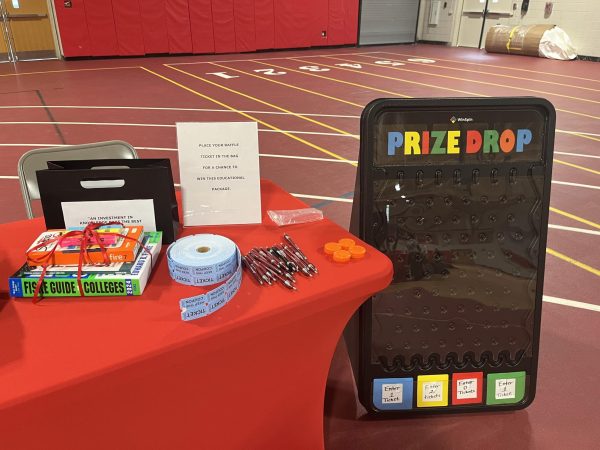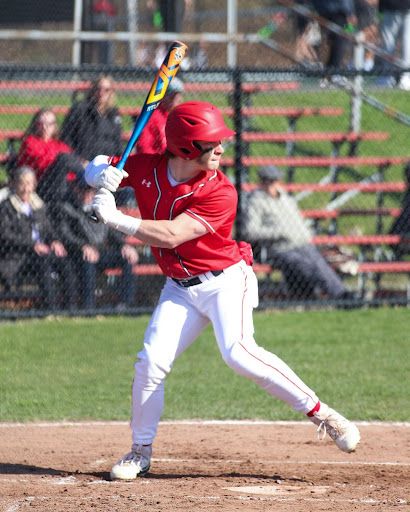“The Sub’s in my group chat!”
Recent Grads Return as Substitute Teachers
May 12, 2023
This year alone approximately twelve to fourteen RMHS graduates under the age of 21 have worked as substitutes at RMHS.
Principal Mr. Tracey said, “I’ve never had more non-college graduates substitute in my career.” He said the reason for this is clear. “The last few years–ever since the pandemic–there has been a major issue of substitute shortage in most districts across the U.S.. RMHS is no different; finding substitutes has been a difficult process.”
Currently, the only qualification that an RMHS substitute needs is a high school diploma. Mr. Tracey said, “We don’t put a stipulation that the person needs to have either an associate’s or a college degree, because it would just limit our pool.”
Part of the reason for this is the inconsistency of the job as well as the wages. Substituting is not a well-sought out job for many individuals. Also, without decent pay, many people may turn to other sources of income before turning to being a substitute. Mr Tracey said, “Subs don’t make a lot of money, and the work is not consistent. So you may get to work on one day, but not get called another day.”
“So we really struggle with trying to get substitutes, we post the positions everywhere we possibly can,” he said.
Another attempted solution to the problem was trying to increase the pay for the substitutes. “We’ve tried to increase our compensation to make us competitive with our surrounding towns. Unfortunately we’re way behind them. So we’ve made incremental gains but were still not matching other towns, such as Andover and Stoneham. So what happens is substitute teachers will go, ‘oh, I can go to Andover and make another $50 a day. Why would it go to Reading?’”
Why do recent grads want to sub?
Somewhat jokingly, Mr Tracey said that he has “no idea” why anyone would want to work as a sub at RMHS when they are paid so little.
“Quite frankly, it can be a brutal, thankless job,” he said. “I would really wonder why a person would want to do that job for next to nothing. When you know, you can go down the street and make 25 bucks an hour.”
Sally Cashin (‘22), a recent Graduate of RMHS, said her decision to sub wasn’t all about the money and actually was due in part to her major in college. She said, “My major is elementary education. So it’s just nice to go back and see [a classroom] firsthand, I guess, especially when you’re the sub and you’re the one in control in the elementary classrooms.”
However, she said she takes high school jobs for a different reason; “With a high school [Classroom], I just sit here and do my homework.”
Eva D’Entremont also graduated in 2022. She said, “I decided to come back to RMHS to sub because it was a good opportunity to explore if I wanted to major in education, and subbing allowed me to test that consideration. Beside the desired pay rate, I also enjoyed visiting old teachers and checking in.”
Benefits and Potential Issues and Controversy
For the most part, Mr. Tracey said that most young subs have been generally beneficial to the classrooms.
“They’ve been reliable, they’re flexible, they’ll go to different rooms, if needed. They’ll cover multiple classes if needed in the cafe. So they’re as productive and effective as any substitute we’ve had,” he said.
Ms. Cashins agrees that there haven’t been many issues with subbing at the high school besides one. She said there have been “subs getting in trouble for kids skipping when subs tell them not to.” Ms. D’Entremont agrees that there is potential for problems. “It could backfire and result in students not taking them seriously and leaving class when desired,” she said.
Mr. Tracey also says that students leaving when they shouldn’t has come up a few times. “I’d say there’s probably one or two times that I’ve had to intervene [with young subs] because people were spilling out the door [or that] type of thing,” he said.
Mrs. Lombardo, RMHS English teacher, commented on the matter because she has had that situation happen in her own classroom. She said that one day she was out because her child was sick. “The substitute was a recent graduate, who I’d actually taught for two years when they went here.” She said she received word from her department chair that multiple students had left class 30 minutes early during G block because, Mrs. Lombardo said, “Apparently, the substitute had told students they could leave if they just said they were going to go to the bathroom.”
Ms. Lombardo thinks that it is not a good idea to allow recent graduates to sub, even in spite of the substitute shortage. She said, “The problem is that many of my current students are friends with the subs, and even have them in their friend group chats online.”
“One of my students said it was extremely awkward to have to call the sub by their last name because they were good friends. I think their age makes it difficult for those subs to establish any authority because they don’t want to be seen as uncool by their peers. While most of the issues have been minor so far, I think there is potential for something more serious to happen while a young sub is in the classroom, and I’m not sure they would necessarily know how to handle it,” she said.
Jonathan Duffy ‘23, who had a recent grad as his sub, commented on a time when a former member of his track team was his substitute teacher. “It was weird but it was kind of cool,” he said. “It was kind of awkward when he put his name on the board as Mr. [Name Omitted]. But I don’t think it was a big difference if you had a 50-year-old sub vs a 19-year-old sub. Because most subs are either on their phone, reading a book, or just sitting there. It’s not like they’re going to teach the class.”
Paige Sharkey (‘23) had Ms. D’Entremont as her substitute teacher. Sharkey said, “It was fun to have her as our sub because we knew her from past years at RMHS so we got to sit and talk with her for the whole class, which turned out to be better than having a random sub.”
She did admit, “I think it is very odd for a student to come back and teach because they have only been gone for a year so it’s weird. I see why teachers think it’s bad but for us student’s it doesn’t really affect us all that much.”
Sharkey also commented on the control a young sub might have over the classroom: “I don’t think the young subs have enough authority over the classroom to stop kids from leaving or other behavior issues.”
However, Duffy disagreed. He said, “I don’t think there’s a problem with the authority of the young subs because they treat everyone the same. If you’re friends with [the sub], they will talk to you for the whole class, but they won’t treat you differently than the other students.”
The future of young substitutes at RMHS
Mr. Tracey acknowledges that it would probably be better to hire subs with more experience than recent graduates. “In a perfect world, yes, instead of doing day to day subs, I would hire five building subs, who would be here full time,” he said. These subs would likely have to be experienced in the field of education and have graduated from college with a degree.
However, Mr. Tracey says that he is overall happy to see returning students who want to sub. “I love it, because it gives us an opportunity to see students again. And I just love the fact that they want to give back to the community and see staff and work here. So, I don’t view it as lessening any sort of qualifications. For me, it’s really opening it up so that we enable students who are in college to come back and help,” he said.
